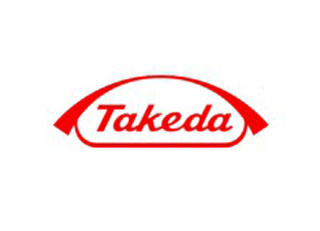 Takeda Pharmaceutical Co. Ltd. announced that the Committee for Medicinal Products for Human Use (CHMP) of the European Medicines Agency (EMA) has issued a positive opinion for Entyvio (vedolizumab), a humanized monoclonal antibody, for the treatment of adults with moderately to severely active ulcerative colitis (UC) and adults with moderately to severely active Crohn’s disease (CD) who have had an inadequate response with, lost response to, or were intolerant to either conventional therapy or a tumor necrosis factor-alpha (TNF-alpha) antagonist. UC and CD are the two most common types of inflammatory bowel disease (IBD), affecting more than four million people worldwide, including approximately 2.2 million Europeans.
Takeda Pharmaceutical Co. Ltd. announced that the Committee for Medicinal Products for Human Use (CHMP) of the European Medicines Agency (EMA) has issued a positive opinion for Entyvio (vedolizumab), a humanized monoclonal antibody, for the treatment of adults with moderately to severely active ulcerative colitis (UC) and adults with moderately to severely active Crohn’s disease (CD) who have had an inadequate response with, lost response to, or were intolerant to either conventional therapy or a tumor necrosis factor-alpha (TNF-alpha) antagonist. UC and CD are the two most common types of inflammatory bowel disease (IBD), affecting more than four million people worldwide, including approximately 2.2 million Europeans.“We are very pleased by the positive Opinion issued by the CHMP for vedolizumab for ulcerative colitis and Crohn’s disease, as this recognition of the clinical benefit of vedolizumab brings us closer to providing the first gut-selective biologic agent for ulcerative colitis and Crohn’s disease to patients across Europe,” said Trevor Smith, head of commercial operations, Europe and Canada, Takeda. “Takeda has a rich history of developing treatments for gastrointestinal disorders and has spent many years studying and gaining insight into the complex science of IBD. With the development of vedolizumab, Takeda is building upon this heritage and expanding into innovative therapies with a new biologic treatment.”
Takeda submitted a Marketing Authorization Application (MAA) to the EMA in March 2013 for vedolizumab for the treatment of adults with moderately to severely active UC or CD. The CHMP Opinion for vedolizumab will now be reviewed by the European Commission (EC). If the CHMP recommendation is formally adopted by the EC, vedolizumab would be approved for marketing in the 28 member states of the European Union as well as Norway, Iceland and Liechtenstein.
“People with ulcerative colitis or Crohn’s disease are most often diagnosed as young adults and face a lifetime significantly impacted by the debilitating symptoms and complex management of these chronic diseases,” said Paul Rutgeerts, emeritus professor of medicine, Catholic University of Leuven, Belgium. “It’s critical that research continues to progress and evolve so physicians and patients have additional options available to help manage these diseases.”
In addition to the MAA submitted to the EMA, the United States (U.S.) Food and Drug Administration (FDA) is currently reviewing the Biologics License Application (BLA) for vedolizumab.
Vedolizumab received a positive recommendation for the treatment of adults with moderately to severely active UC or CD from a joint panel of members from the Gastrointestinal Drugs and Drug Safety and Risk Management Advisory Committees of the FDA on Dec. 9, 2013.
The MAA submission is supported by the GEMINI Studies, a clinical program investigating vedolizumab in 2,700 patients across nearly 40 countries. It is the largest Phase 3 clinical trial program conducted to date evaluating both UC and CD patient populations in parallel. Enrolled patients had failed at least one conventional therapy, including corticosteroids, immunomodulators and/or a tumor necrosis factor-alpha (TNF-alpha) antagonist. TNF-alpha antagonist and conventional therapy failure patients included those with inadequate response (primary non-responders), loss of response (secondary non-responders) or those who were intolerant.
Date: March 21, 2014
Source: Takeda
Filed Under: Drug Discovery



